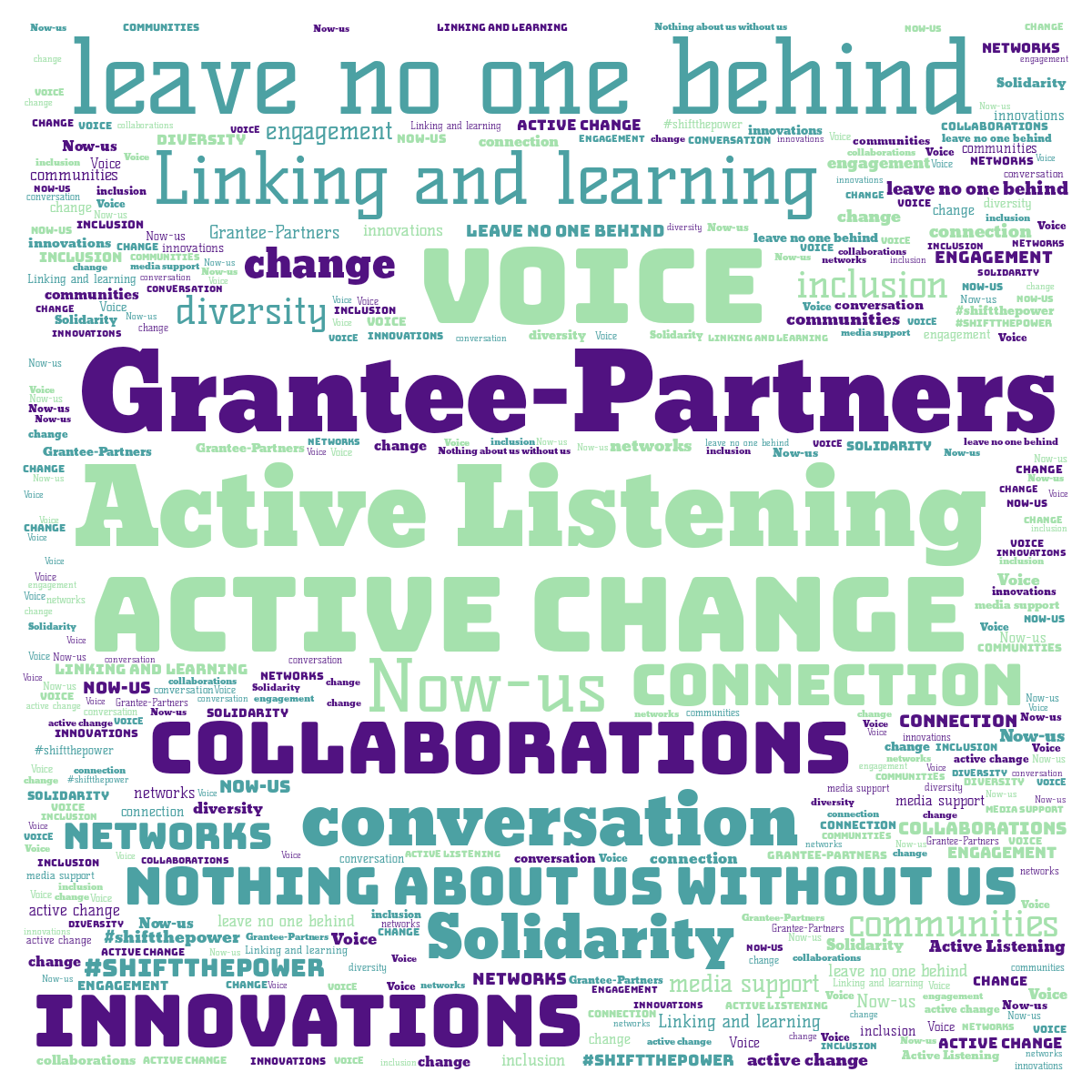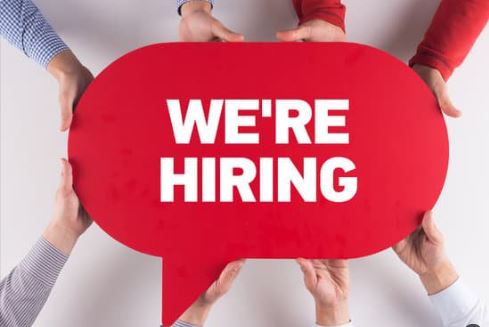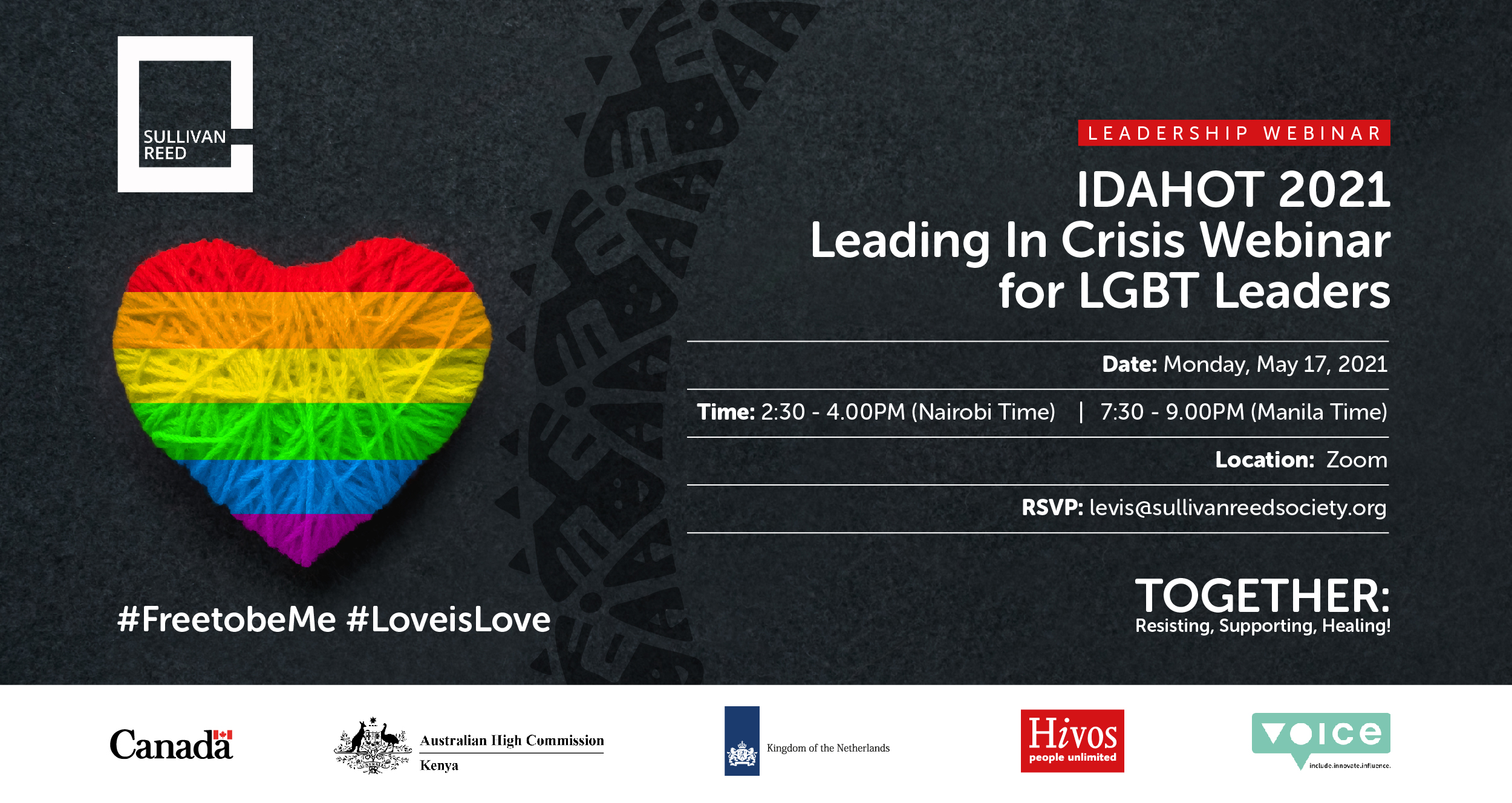The second Voice Knowledge Exchange: Influencing Unbound!
My learnings as a Linking and Learning Officer
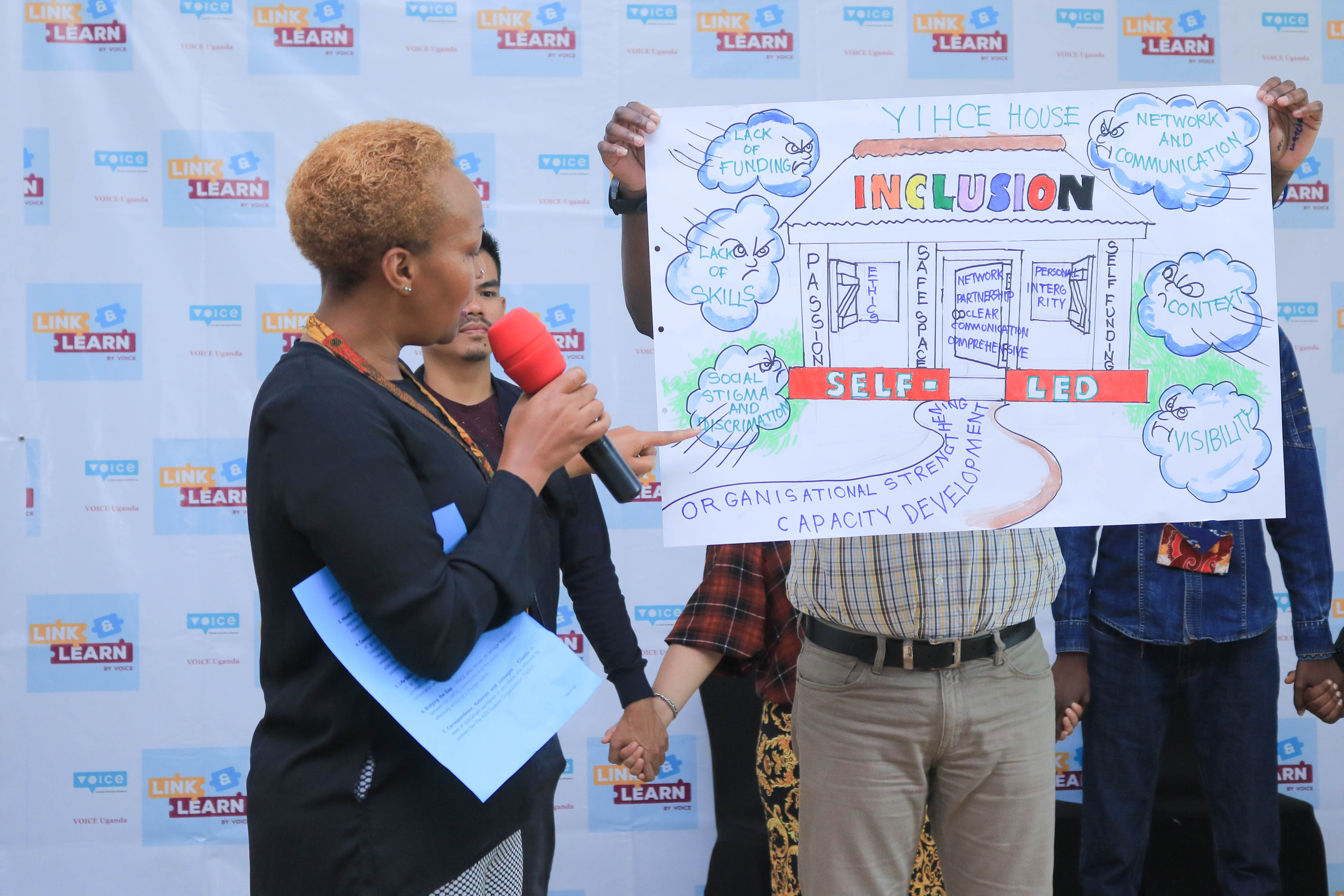
By Nyambura Gathumbi Voice Linking and Learning Officer,Kenya and Tanzania, Programme Manager, Hivos East Africa.
“Knowledge is like a baobab tree; no one can encompass it with their hands“
Ghanaian proverb
This proverb has never rung more true than it did last week during the 2nd Voice Knowledge exchange that took place in the beautiful, lush, green and peaceful Masaka region in Uganda.
It’s not always easy to be a core part of a process and be able to learn as much as I did during those three days. Similarly, it is difficult to be part of a planning process and still be able to take a step back and reflect on that very same process. But on the contrary, for this particular Knowledge Exchange I found myself in deep reflection, leaving me with so many questions. While some of those questions were answered in the course of the week, quite a number of them are still ringing in my mind. I am hopeful that I will find the answers to these as we continue the Voice learning journey.
When we set out for this Knowledge Exchange, I must confess, I perceived it as yet another Voice Linking and Learning event. One in which teams would come together, carry out the ‘usual’ conversations; although admittedly nothing is ever ‘just usual’ with Voice , and then go home. Even as we brainstormed and put down the questions to explore in the exchange, it never occurred to me how powerful this topic would turn out to be. “Influencing unbound: the ingredients of self-led influencing”!
I couldn’t even start to imagine how rich the discussions were going to be. As I said, nothing is ‘usual’ when it comes to Voice.
What a choice for a topic! Don’t you think?
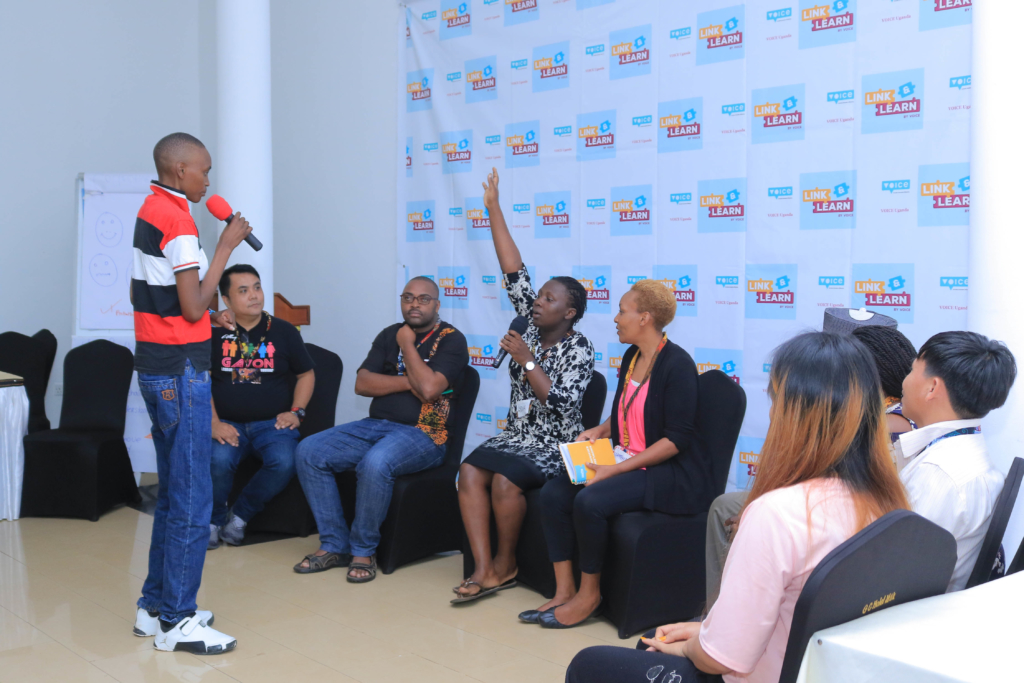
The power of this process was reflected in the many interesting things that Voice grantees and rightsholders work with across the world. From Africa to Asia, the rich diversity in topics, groups, challenges and opportunities was breathtaking.
I mean, you need to spend time in a process like this to realise just how dynamic it is. The process was not only about deep connections, but also about profound conversations touching upon some very personal issues. It was about bursting myths and misconceptions as well as embracing new realities.
As I got engrossed in the conversations, I couldn’t help but question;
- Why is it that Gender and Sexual Minorities (GSM) and sex-worker movements are only organised in cities and big towns?!
- Who cares about minorities within minority groups like the I’s (intersex) in LGBTI? More so, who is working with this group? What are the learnings from the emerging intersex persons network in Kenya, and what can other countries borrow from this, if at all? What can they learn from others?
- Who takes time to think about the impact of the work of indigenous environmental justice activists on social justice in very remote regions of the world that don’t make it into the media?
- Why do we always imagine that only educated English speakers are able to influence change?
- What does reaching the furthest left behind really mean? Is there more we could do here?
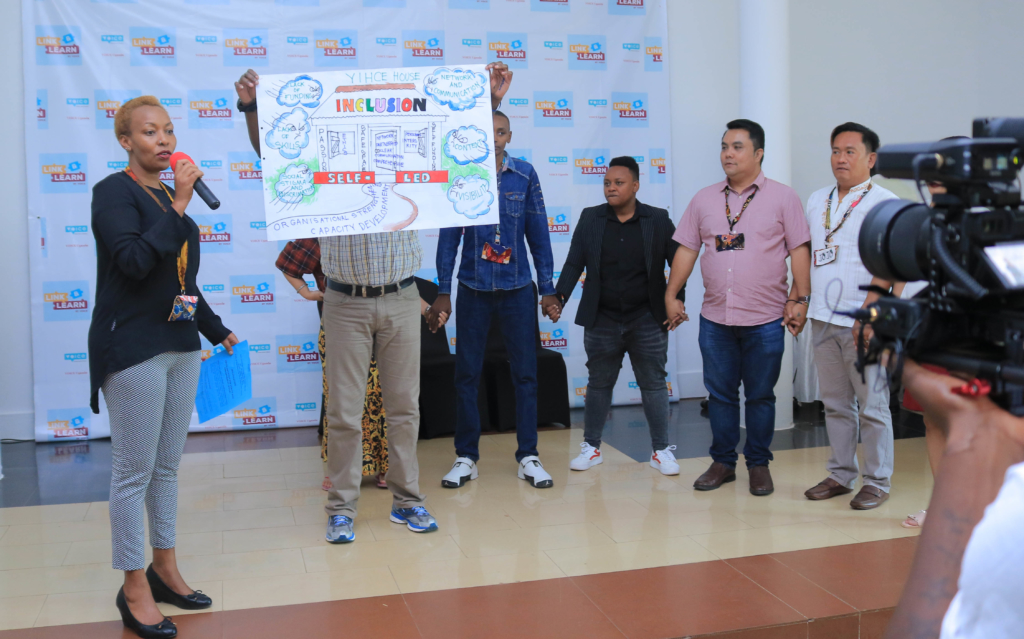
These and many other questions came out really strongly during the week. While these questions and issues are not necessarily new in our contexts, it was important to discuss them with the groups that were present particularly because of the diverse nature of the representatives. A farmer from rural Indonesia having a deep conversation with a transgender person from East Africa, being able to connect to appreciate each other’s struggles left a mark on me. Seeing people expressing honest and deep curiosity to understand others’ struggle was something you don’t see every day.
We did not just talk about the beautiful things; we didn’t shy away from touching upon difficult topics. For example corruption in social justice movements. We talked about fraud, abuse, waste, lack of transparency and accountability, impunity, founder syndrome and lack of integrity as some of the vices that have gripped the sector and contributed to loss of credibility of social justice movements. We discussed how donors sometimes interfere with the organic growth of these movements by offering too much funding too quickly.
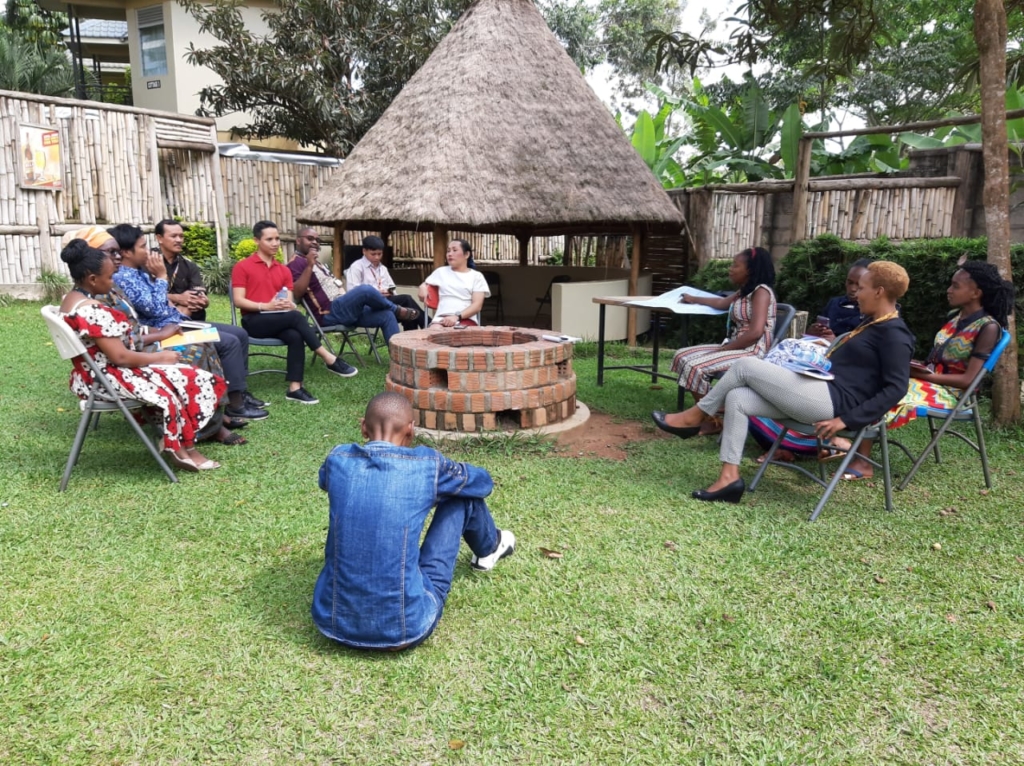
Asking ourselves questions like how often do donors ever take time to assess the impact of funding practices on organic self-led initiatives? Are donors contributing towards building or drowning movements? These and many other questions got me thinking really hard about our work. And while Voice cannot claim to solve the problems of the world I got an opportunity to think more critically about the role of and as a funder in this space. I was able to appreciate the contribution we continue to make in this important work but also to reflect on how best we can do that.
My highlight came at the point where we were asked about what makes self-led initiatives powerful. I realised it’s something we know but never pay too much attention to. As one participant put it:
“self-led influencing stems from deeply personal struggles that push people to do something about their situations”.
That is what makes them authentic and legitimate. Therefore, for us and others in this space; we must be very clear about our role which is mainly to support and strengthen self-led initiatives without influencing them in our own direction! It’s not only about being inclusive but also about respecting autonomy, diversity, difference, self-determination and peoples’ choices. It’s also about recognising each other’s role and working to support each person to be the best we can be. More importantly it’s about learning when it is time to let go; and this would apply to both funders and founders. It is also about thinking through and helping social movements come up with sustainable mechanisms that would survive any external influences and pressure.
The full visual report on the Knowledge Exchange is available here
What a week! I can’t wait for the next Knowledge Exchange!

